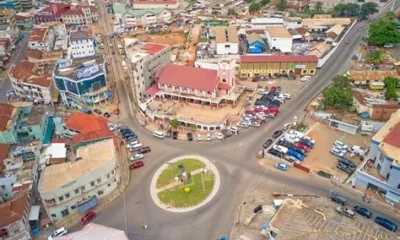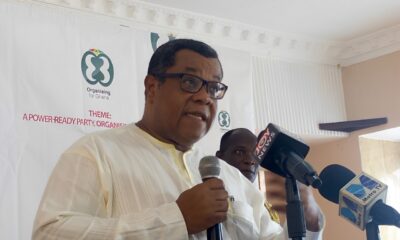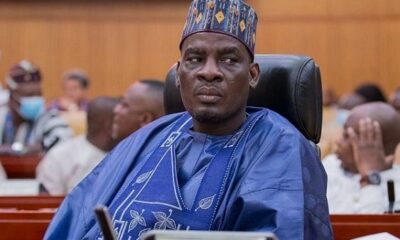Published
5 months agoon
By
Adubianews
Africa Policy Lens (APL) has issued a scathing critique of FUND24, the proposed financial engine behind John Mahama’s 24-hour economy, warning that the initiative is structurally unsound, fiscally reckless, and could do more harm than good. Describing it as “the most brittle pillar” of the 24H+ economic vision, APL says the policy rests on dangerous assumptions and unrealistic expectations.
According to the policy review, FUND24 promises affordable capital for SMEs, infrastructure expansion, and job creation. It is designed to operate across three major tracks: enterprise financing through DBG and VCTF, infrastructure development via GIIF special-purpose vehicles, and technical assistance from the 24H+ Secretariat. On paper, it appears ambitious. In reality, APL claims, it is structurally flawed and fundamentally incompatible with Ghana’s economic conditions.
APL highlights that FUND24’s aim to raise $4 billion by 2030 through blended finance and foreign institutional capital is deeply flawed due to Ghana’s ballooning debt and poor investor confidence. With public debt reaching $49.5 billion, or 55% of GDP as of March 2025, the country has fallen out of favour with development finance institutions. Ghana received none of the $3.59 billion in infrastructure funding allocated to Sub-Saharan Africa in 2022, indicating DFIs’ lack of trust in the system.
Even more concerning, APL says, is the currency risk built into the model. With the cedi having depreciated by 40% in 2022, borrowing in dollars to lend in cedis becomes a financial time bomb. The review warns that one wave of defaults could cripple the entire program if DBG attempts such a structure.
Another major concern raised is the proposal to channel GHS 42 billion in pension funds into SME equity. APL describes this move as outright reckless, noting that pension schemes are meant to protect livelihoods, not back risky ventures. A single failure, they argue, could erase the savings of an entire generation of retirees.
The infrastructure element of FUND24 was also criticized as highly unstable. The policy’s flagship Agbledu parks, according to APL, may never materialize due to Ghana’s chaotic land tenure system, where over 80% of land is informally owned and lacks legal traceability. Without secure land rights, infrastructure development is nearly impossible to execute efficiently or transparently.
Equally troubling is the proposed digital loan platform. FUND24 assumes a tech-literate population, yet only 58% of Ghanaians have internet access. APL dismissed the concept as a “digital delusion,” saying it’s impossible to run an inclusive lending platform when nearly half the population remains offline or digitally excluded.
In light of these concerns, APL called for a complete rethink of the policy’s financing model. It urged the government to move away from dependence on foreign lenders and build a robust, local funding ecosystem. Ghana, it says, should unlock its own capital markets, reform land administration, and develop a domestic lending framework that prioritizes low-risk investments.
APL proposed that the government should issue diaspora bonds to attract part of the $4.7 billion in annual remittances. Additionally, rather than relying on fictional foreign investors, it should partner with local economic giants like MTN, Dangote, and Ghana Oil to co-invest in projects. While pension funds can be involved, APL recommends structured, low-risk allocations modeled after South Africa’s Regulation 28 as a safeguard.
In its final analysis, APL was blunt: “FUND24 is not just flawed; it is dangerous in its current form.” The group believes that unless the policy undergoes immediate and deep restructuring, it is doomed to join the list of failed economic experiments.
Built on weak foundations, over-reliant on external financing, and blind to Ghana’s on-the-ground realities, the think tank believes the FUND24 model could become a cautionary tale rather than a national success story.
“Without urgent course correction, it will join the growing list of failed Ghanaian economic fantasies,” APL concluded.


Fidelity Bank Backs Ghana’s 24-Hour Economy with Cross-Border Finance Solutions


Government to Establish Machinery Park in Kumasi Under Make24 Plan


Grow24 to Revolutionize Ghana’s Agriculture, Says Goosie Tanoh


Edem Agbana Endorses 24-Hour Economy as Transformative for Ghana


Ghana to Revise GIPC Act to Power 24-Hour Economy – Haruna Iddrisu

























